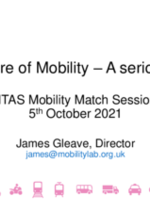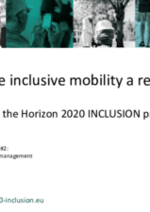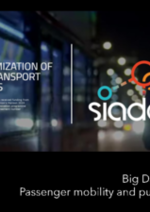Accessible mobility for all: CIVITAS Mobility Match session #2 explores integrated planning

Image by Unsplash, Fons Heijnsbroek
At the second Mobility Match session, tool developers introduced valuable resources for cities aspiring to make their mobility systems more accessible.
After a first session dedicated to car-independent lifestyles, the second CIVITAS Mobility Match Session shifted the focus to integrated planning and mobility management – two topics which are at the core of many of the mobility-related challenges faced by CIVITAS cities. This session took place on 25 October, 2021.
The participants were introduced to three new tools from the CIVITAS Tool Inventory that addressed integrated planning and mobility management from different perspectives. As in the first session, and following the Mobility Match Session goal of ensuring successful knowledge transfer, each tool was presented directly by its tool developer. Each tool developer guided participants through the basic notions of the tools and their applications.
First, INCLUSION: How to make inclusive mobility a reality. Designed to provide urban planners with a set of guidelines to achieve a more inclusive public transport sector, INCLUSION addresses all types of transport users. Introduced by Ralf Brand, senior sustainable mobility expert at Rupprecht Consult and the coordinator of the Horizon2020 project of the same name, the tool focuses specifically on vulnerable transport users in rural, peri-urban, low-income and urban areas and lays out their individual demands in our sustainable transport infrastructures.
Second, SIADE SaaS. Combining Spatial Big Data and GIS technology, SIADE SaaS can simulate, analyse and predict transportation flows with high accuracy. With access to such information, cities have the ability to optimise their transport networks. Introduced by Maria J. Argüelles, CEO and founder at Terrain Technologies, the tool has already been effectively implemented in cities like Madrid, Tel Aviv and Buenos Aires. Maria’s presentation highlighted some of these key case studies.
Third, the Future of Mobility Scenario Game. Presented in the format of a board game, this interactive tool provides local authorities, planners and practitioners with a better understanding of their city’s mobility needs. After it was introduced by James Gleave, founder and director of the Mobility Lab UK, workshop participants were involved in a short demonstration of the game.
Overall, the second Mobility Match Session proved to be a clear success. The participants showed great interest in using or applying the tools in their cities and even the tool developers were able to gather useful information from the audience to improve content or services of their tools.
For more information, be sure to check out the presentations below.
Author: Jordi Bosch
Resources
Multimedia Library
This is recommended related external content and can be viewed by clicking on it. By clicking you consent to the display of external content. This enables personal data to be transmitted to third-party platforms.
Read more about our privacy policy.









